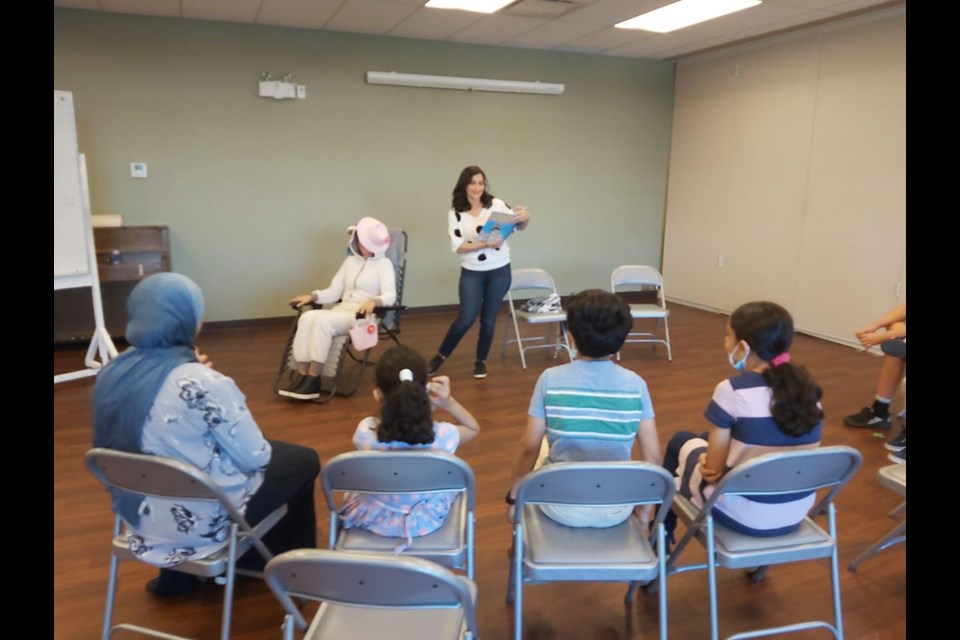In a year that brought numerous challenges to so many people, it’s important to acknowledge that there are still reasons to celebrate.
Be it birthdays, weddings, or graduations, the event might not be as big or boisterous as in previous years but celebrate indeed.
Burnaby Neighbourhood House is certainly feeling celebratory because this April marked the first anniversary of the successful launch of their New Settlement and Integration Program, amidst the Pandemic, which serves new immigrants, refugees and migrant workers.
“The program was developed initially as a response to immigration, migration, poverty and social justice but has become so much more,” Gulalai Habib, the program’s director, joyously declares.
“Neighbourhood House offers unique service-delivery and civic engagement which. Newcomers in the community are connected and engaged. They have a sense of belonging in their community,” Habib says.
Burnaby Neighbourhood House (BNH) is one of the 16 Neighbourhood Houses (NH) in the Greater Vancouver Area. Neighbourhood Houses are community-based, welcoming places where people of any age, nationality and ability can find a way to connect with others and to their community.
Burnaby Neighbourhood House applauds its ten courageous frontline settlement workers and case managers. They went beyond their job description and acted as essential workers during a time where most in-person services were restricted.
Neighbourhood House offers assistance for newcomers who are adjusting to life in Canada. Settlement workers assist with applications to access all the eligible government programs, services and benefits, financial aid, housing, food security and more.
For example, an application for Permanent Residency within Canada and/or from abroad can involve a lengthy process that requires experience with and knowledge of the immigration process.
The Neighbourhood House also creates a sense of community for all ages—elementary school children to seniors— focusing on long-term community engagement and social-economic integration. Activities such as English conversation art, cooking classes, homework clubs, youth circles, volunteer opportunities, technology literacy support (virtual and in-person) as well as first language information and orientations to B.C. for newcomers are available.
The first step in assisting new arrivals to the program is establishing clear communication with the newcomers’ languages and cultural relevance. Next, it is essential to help foster an understanding of the settlement and integration process, sharing cultural values and experiences in an inclusive multi-cultural Canada, and learning about the Indigenous Nations, their history and the importance of land acknowledgements.
All the settlement workers speak numerous languages, and Neighbourhood House has also trained volunteer interpreters. It also has a roster of freelance translators and interpreters hired to meet the linguistic needs of as many people as possible.
This first year saw the organization aiding more than 1,200 people from all over the Lower Mainland and self-distant migrants from various Canadian provinces.
“That has equipped us as an organization to serve the community and remove language as a barrier,” Habib explains. “We believe language is access, and access is opportunities.
“Migration is a complex process, and with the arrival of each newcomer, that process changes, and we have an added asset in our communities”, explains Habib.
A majority of the people that the Settlement program serves face multiple barriers.
Habib says it’s not only language barriers, but they may possess low literacy in their first language, lack technology skills, have mental and physical health issues, and are coping with trauma. Many newcomers are refugees who are deeply scarred from years of living in war and refugee camps.
At the same time, newcomers share knowledge and advanced skills that we learn from.
“So many newcomers are so lost and overwhelmed with the numerous issues, systemic barriers and challenges they face in a new country—especially migrant workers and those who come from protracted refugee camps,” Habib says.
“Imagine packing and leaving home within minutes to save you and your loved ones, leaving behind everything without choices. After years of waiting in the refugee camp, suddenly, newcomers are placed in western society. Everything is so foreign. Everything is so new.”
The settlement workers and case managers help with this transition, minimizing the elements of foreignness by walking them through various application processes and systems, using a cultural lens and listening to their concerns.
Habib insists that lending an ear to hear what people have experienced and their challenges as they transition to a new country is invaluable.
Settlement support is more than just one session to sort out services and applications. Settlement workers follow up on multiple issues of concern at one time and assist with goal setting, building a realistic action plan, all through the continuum of a newcomer’s re/settlement and integration.
Habib says that perhaps financing didn’t arrive in time to pay the rent, and they might not have access to funds to pay it.
“Recently, a single mother from a refugee background, who has four children, approached us seeking help with bedbugs, housing emergency and other health issues. She is now living on the island, her children are in school, and she is connected to the resources and support agencies there,” Habib says.
If newcomers are disconnected from family abroad and wish to reunite with children or parents, settlement workers can help arrange that too.
“There are a lot of ways that a settlement worker plays a significant role through their lived experiences of migration and displacement,” Habib says.
Settlement workers can help connect people to professional services should they need counselling, support coping with issues or navigating the legal system and community resources.
Habib says it can be a struggle for new immigrants to find the right lawyer who is also affordable, within the deadline of their immigration cases.
"The work of the frontline settlement workers changes people’s lives and our community for the better,” Habib affirms.
Burnaby Neighbourhood House is in the process of starting a Podcast with a focus on community voices, including the voices of new members in our communities.



